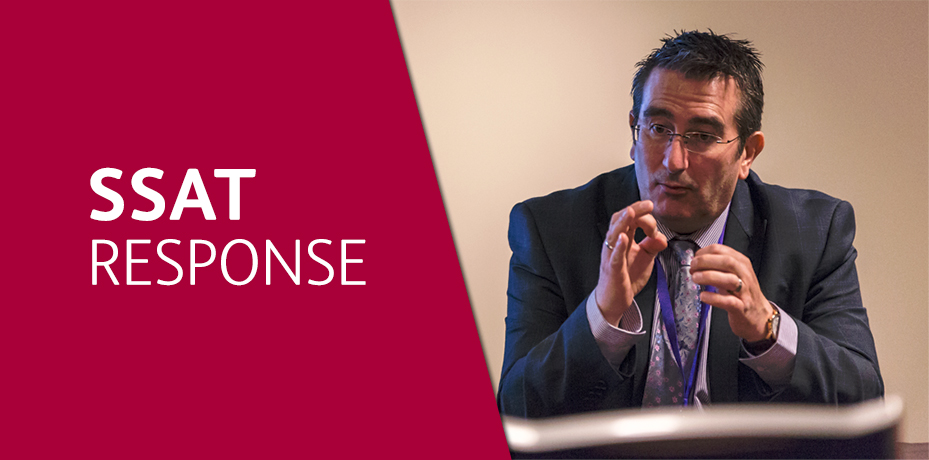 This afternoon the chancellor announced an extra £4bn for education in his new budget. Acting on previous comments made by the prime minister, he also voiced plans to ensure that all schools become academies within the coming years.
This afternoon the chancellor announced an extra £4bn for education in his new budget. Acting on previous comments made by the prime minister, he also voiced plans to ensure that all schools become academies within the coming years.
SSAT’s history, working with the earliest sponsored academies as well as maintained schools means that we support greater freedoms and autonomies for headteachers, working within a highly collaborative system.
Historically, SSAT has always advocated that schools should choose whether or not to be academies, and that there is too much focus on structures rather than teaching and learning.
As we await further comments from the secretary of state for education, here are five thoughts on the government’s plans:
1. School autonomy is a good thing, but heads need support
SSAT strongly believes in a self-improving school system. It is therefore desirable to place decisions about school improvement directly with the schools themselves; rather than in wasteful bureaucracies. In a truly schools-led system, schools must be given the financial autonomies and curriculum freedoms to control their own destinies.
However, as we know from the highest-performing education systems globally, schools cannot work alone. With greater autonomy comes greater need to work collaboratively, across a number of different networks. We saw the value of sponsored academies in similar settings, specialist schools with similar interests and different groups of schools working together to raise standards.
When all schools are academies, we need to ensure that the most isolated, most vulnerable schools are not left without a support network. Furthermore, we need to balance school-to-school competition, which can drive standards, with strong peer collaboration.
When all schools are academies, we need to ensure that the most isolated, most vulnerable schools are not left without a support network.
Even as schools move away from local authority control, this does not mean that schools cannot be at the heart of their communities. The best academies retain strong links to community and faith groups, local businesses and local schools.
2. Academisation does not mean for-profit
One of the greatest concerns of critics of academies is a fear that academies are controlled by for-profit companies. It is important to remember, in light of all schools becoming academies – sponsored or otherwise – that no multi-academy-trust can make a profit. All trusts are registered charities, and if they make savings at the end of the school year, these must go back into schools.
Simply, whilst academisation might represent a privatising of schools away from local government, no state-funded school can currently make a profit.
3. Academies are still accountable
All schools, whether maintained or academies, are subject to inspection by the independent inspectorate Ofsted. There has been concern on social media that academisation weakens accountability for schools.
As we see across our network of members, the strongest schools – whether academies or not – maintain rigorous systems of internal accountability and school improvement, as well as being accountable to the independent inspectorate for their standards.
4. There are different types of academies
When many critics of academies dismiss the notion of academies in general, it is important to draw a distinction between the original sponsored academies, established when a sponsor takes over a failing school or builds a new school in a deprived area, and convertor academies, where good schools choose to become academies.
If schools are choosing to convert to academies, then it’s important that parents understand this decision. And if an academy becomes sponsored, again, parents need to understand the implications of this.
5. What does this mean for maintained schools?
By 2020, all primary and secondary schools will have to be, or be on the way to being, academies. The first thing to remember is that this gives schools a four-year breathing space; there is no need to rush into a decision overnight.
Essentially, schools will have to choose between:
- Converting to a convertor academy, if you are rated good or outstanding, have strong exam results, and a healthy budget.
- Seeking a new sponsor and becoming a standalone sponsored academy.
- Joining an existing MAT, either nationally or locally.
- Forming a new MAT with a group of likeminded or local schools.
The Department will have its own preference about the route taken, with the favoured model being MATs containing a range of school stages and types; with stronger schools supporting weaker ones.
However, schools can make their own decisions about what is right for them, unless rated inadequate or coasting, in which case they will be guided by the regional schools commissioners. In making these decisions, there are a number of factors that schools will consider.
Schools can make their own decisions about what is right for them, unless rated inadequate or coasting, in which case they will be guided by the regional schools commissioners.
SSAT, as an organisation independent of both central and local government, will be holding a series of regional seminars to support schools make informed decisions, details of which will be announced following the publication tomorrow of Nicky Morgan’s white paper.
